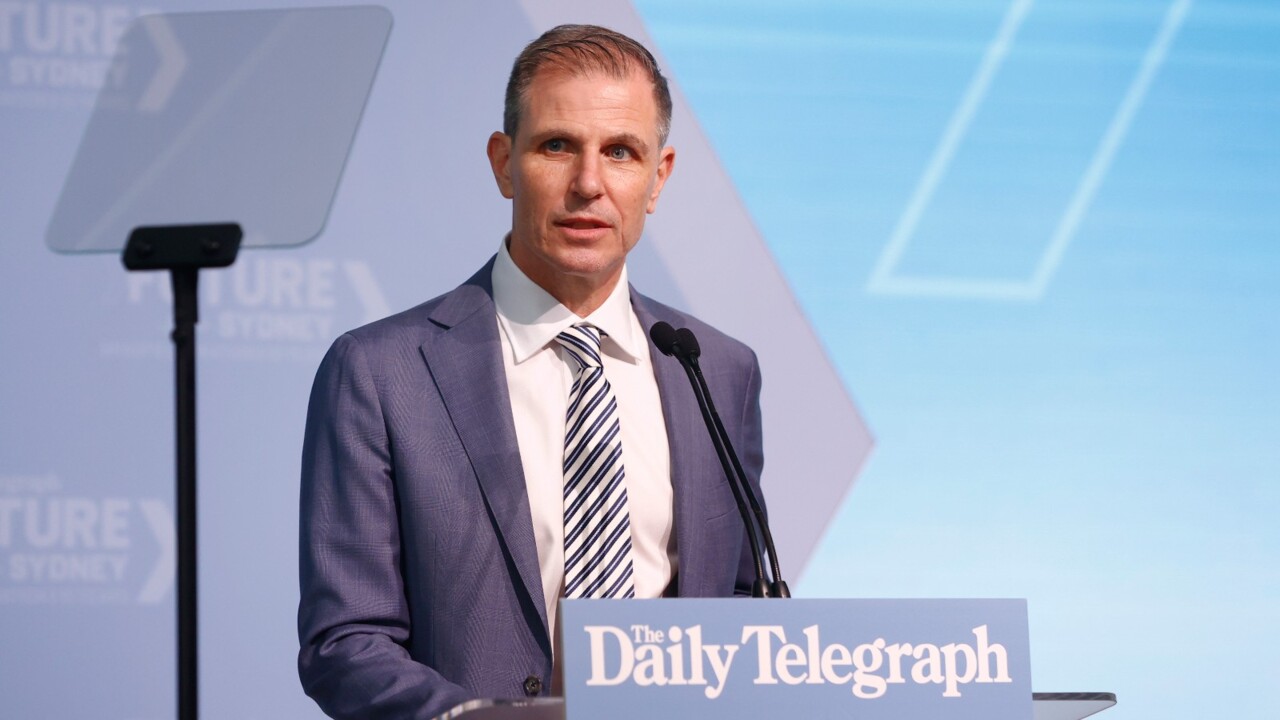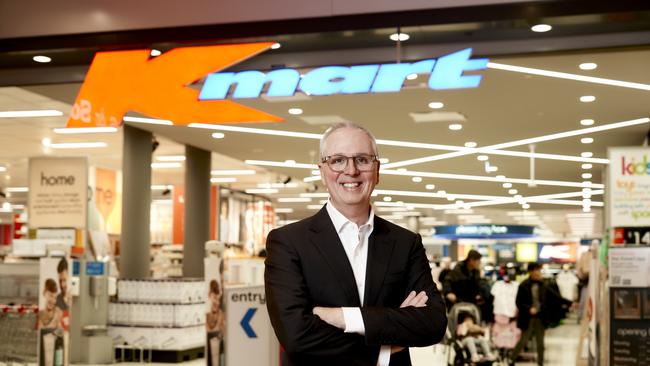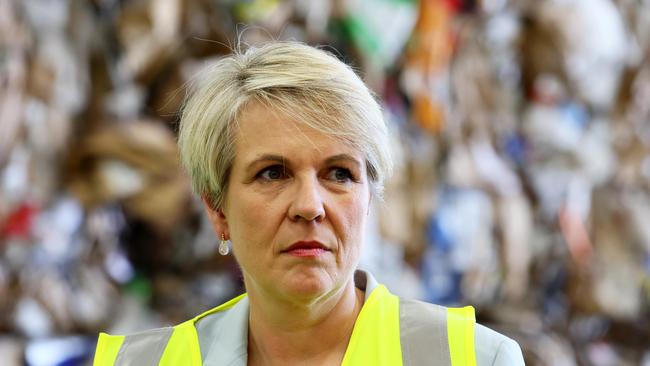Kmart refuses to sign ‘flawed’ fashion recycling scheme
The nation’s largest fashion retailer says a planned 4c levy on all garments to fund a recycling scheme is badly designed and could cost up to $500m a year to run.

The nation’s largest clothing retailer has warned the federal government a fashion recycling scheme was riddled with flaws, would cost $1.2bn to establish, another $500m a year to run, and could ultimately collapse in chaos, similar to the recent failure of a supermarket plastics recycling initiative.
Kmart Group, which includes Target and has revenues of more than $10.6bn a year, has written to the federal Environment Minister Tanya Plibersek outlining its concerns about the proposed National Clothing Product Stewardship Scheme, which is set to be delivered by the Australian Fashion Council.
Kmart, which is owned by Perth-based conglomerate Wesfarmers, has told the minister it will not join the scheme that would see retailers like Kmart pay a 4c levy per garment on every new product made or imported in Australia due to problems including implementation, operation and the way the funds raised will ultimately be spent.
This includes billions of dollars in set up costs, the fact the scheme won’t be mandatory for all players, that international retailers have mostly refused to join thereby giving them a ‘free ride’ at the expense of Australian retailers, and that much of the money to be raised by the levy will likely go to hiring executives rather than actually combating waste and landfill.
“In order to make a material difference to the volume of apparel waste that can be diverted from landfill, we support the introduction of a regulated extended product responsibility scheme,” Kmart Group boss Ian Bailey wrote in a letter to Ms Plibersek this week, and obtained by The Australian.
“This scheme should be characterised by mandatory participation together, and a levy rate for clothing without circular design attributes that is sufficiently material to be a financial incentive,” he wrote.
“We see the need for the entire clothing sector to take responsibility for its end-of-life product waste and support the development of a scalable and sustainable textile recycling industry. “However, limited clothing sortation and recycling infrastructure currently presents a major roadblock to reducing clothing waste, and that is where we see the need for genuine action and resources to be focused at the present time.”

The Australian Fashion Council launched its recycling initiative in June to help combat the more than 700 million fashion garments that end up in landfill each year.
Called Seamless, it has been designed as a voluntary scheme to deal with end of life product waste – imposing a levy of 4c on each garment that will be collected and administered by Seamless, under the auspices of the AFC.
Seamless foundation members include large retailers such as Cotton On, Big W, David Jones, Rip Curl, R.M. Williams, Sussan and The Iconic.
However, Kmart Group has done modelling of the scheme and says its design had fundamental flaws, which it detailed in full in its letter to the minister’s office.
This includes the need for proper regulation around the scheme, making it mandatory for all players, and that money raised from the 4c levy won’t be anywhere close to the billions needed to properly run the Seamless scheme.
“Critically, without regulation, a scheme will not achieve the market participation coverage across both Australian as well as international retailers that is required to both fund the operational costs of sortation and recycling, and the investment required to build this infrastructure at scale,” Mr Bailey said in his letter.

In response, Minister Plibersek said the average Australian sends almost 10 kilograms of clothing waste to landfill every year, and that she encourage the Kmart Group to join with other retail brands to take responsibility for the huge amounts of textile waste they send to landfill. She warned, without action from the sector, she would move to regulate.
“I’ve been clear with business, including the Kmart Group, that if they don’t step up on waste, I will regulate. The alternative to this program isn’t a weaker scheme with a lower levy – it’s government regulation.”
The Minister has made clear that industry has until June 30 to show the industry scheme is viable, at which time the government will regulate, which includes legislation.
But Mr Bailey warned Ms Plibersek that more than $1.2bn of infrastructure was needed to build the sorting and recycling facilities to process unwearable clothing in Australia, together with over $500m in operating costs annually.
This would prove impossible to cover with the paltry funds raised by the 4c levy.
“In comparison, the current voluntary scheme would raise funds of approximately $4.9m at the current participation and levy rate, and participation of at least 70 per cent of the industry would be required to reach the current target funding of $40m per annum,” he wrote.
“To achieve the desired outcome of less clothes in landfill, levies will need to be higher, which further incentivises brands to ‘free ride’.”
Mr Bailey also warned the minister in his letter of November 13 that the proposed Seamless scheme would not be able to deliver the same outcomes regardless of the time horizon, given the Australian fashion sector was highly competitive, with almost 14,000 individual enterprises placing clothing on the market.
“Due to this level of fragmentation, the clothing sector is not suited to voluntary stewardship. In the absence of regulation, it will inevitably experience a large proportion of ‘free-riders’,” he wrote.
The currently limited market participation in the proposed ‘Seamless’ scheme is also unlikely to improve with prospects for higher levies, Kmart Group said.
Kmart Group is also concerned that without proper funding Seamless could collapse much like the soft plastics recycle scheme run through the supermarkets, called REDcycle, which failed last year leaving 11,000 tonnes of stockpiled plastics and a major headache for supermarkets, regulators and government.
The failure of the largest soft plastics recycling scheme also shook consumer confidence in the idea of sorting soft plastics for recycling purposes.
“We see the need for the entire clothing sector to take responsibility for its end-of-life product waste and support the development of a scalable and sustainable textile recycling industry,” Mr Bailey said as he signalled Kmart Group would not sign up to Seamless.
“However, limited clothing sortation and recycling infrastructure currently presents a major roadblock to reducing clothing waste, and that is where we see the need for genuine action and resources to be focused at the present time.”



